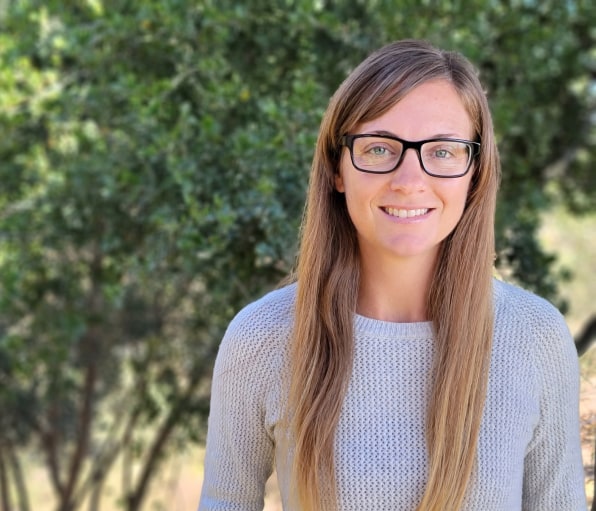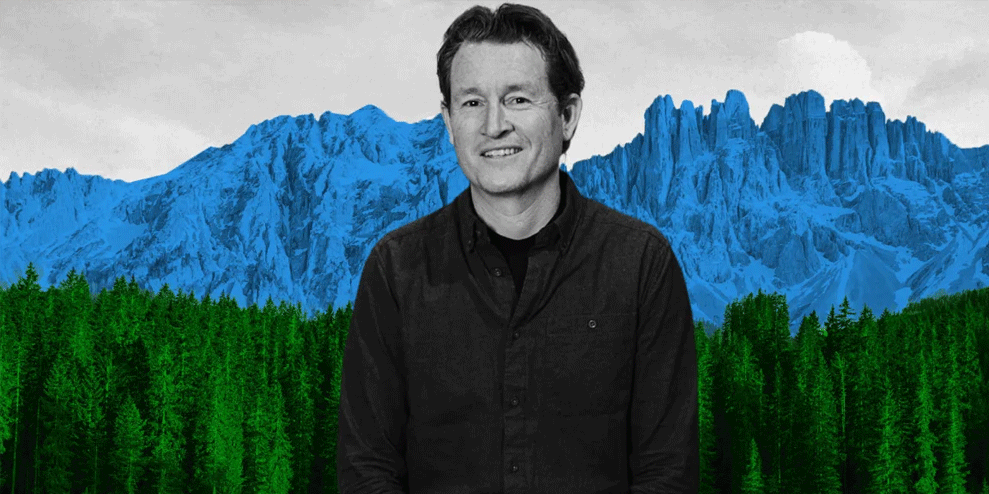Patagonia has named Ryan Gellert, its Amsterdam-based managing director of Europe, Middle East, and Africa for the last six years, as its new CEO. The announcement comes just over three months since Rose Marcario stepped down from the top spot after 12 years at the company.
Chief operating officer Doug Freeman has been interim leader as the privately held company’s board and founder Yvon Chouinard searched for Marcario’s successor.
Turns out, he was already in the building (sort of).
The 48-year-old Gellert, who originally hails from Florida, first joined Patagonia in 2014 after spending 15 years at the outdoor brand Black Diamond, in roles that included managing director in Asia, vice president of supply-chain management, and, eventually, brand president.
The shift in leadership comes as the company has continued amping up its activism around the U.S. election, with initiatives like Time to Vote, launching the public lands protection documentary Public Trust later this week, and helping to fund LeBron James’s More Than a Vote poll worker recruitment campaign.
Oh, and planting less-than-subliminal messages in its clothing.

Along with Gellert’s appointment, Patagonia has also done some executive restructuring, naming Jenna Johnson, its VP of technical outdoor, to the newly created position of head of Patagonia Inc., and chief product officer Lisa Williams is now head of innovation, design, and development. According to the company, the restructuring is aimed at more clearly aligning its various business units with its mission and outdoor sports communities.
It’s a critical time for a company many view as a North Star when it comes to not only living and breathing its values, but also using activism around environmental protection and fighting climate change to actually make its business stronger. As a retailer, it’s felt all the familiar challenges of the pandemic—closed stores, disrupted supply chains, sales declines—but remember, this is a business with a mission to “save our home planet.” Yet its home state of California is essentially on fire, and the stakes of the upcoming U.S. presidential election could determine the fate of public lands and environmental policy for years to come.
Fast Company talked to both Gellert and Johnson about their new jobs, and how they’re plotting the next chapter in Patagonia’s history.
Fast Company: What can we expect from you as the face and voice around the big initiatives and issues the company is invested in?
Ryan Gellert: I really like working with people and seeing them be successful, and just working to see how we can crack the code of getting more done together than individually. One of the things we’ve had some success with in Europe is really trying to create an environment where people can get involved above and beyond their role. That’s something I’m excited to expand on in this new role. Not that it doesn’t happen already, but it could never happen too much.
I want to create an environment where people really feel like the hard work they’re putting in is worth it. They see what it’s contributing to. I want to make this company more global, and I think it’s got a tremendous opportunity to be that. Our biggest goal heading to the future is just distilling the most meaningful parts of our mission and product into the middle of the business. That’s what’s going to lead us in this next chapter, and I think far beyond that.
FC: When you say the company needs to be more global, is the impact of its activism a big part of that?
RG: It’s fundamental. Our strategy here is, yes, we’re a business, but it’s a means for us to pursue our mission. When we introduced the new mission statement, we took about six months as a European team, and we challenged ourselves to think about how to make sure that statement doesn’t just become the equivalent of a bumper sticker or T-shirt slogan. What are we really going to commit to, to live up to the ambitions of that mission statement?
For us, outside of minimizing our footprint as a business, [that meant]the ongoing protection of wild places and scaling regenerative organic agricultural practices, which we are working very hard on to grant, fund, and bring people together.
Then finally, one that is perhaps uniquely European, but I think has global resonance, really scaling community-based renewable energy co-ops. I say it’s maybe uniquely European because the EU has put a structure in place and asked member states to roll out local regulation, so we’re doing a pretty sizable campaign in the spring next year that’s going to be focused on these issues.
On the global level, the ambition of the mission statement was to focus on root-cause issues, and I think we really need to continue to distill down to those root-cause issues, and to some extent, also really build some deeper strategies about how we can impact those.
FC: Jenna, you’ve been with Patagonia for about a decade. And Ryan’s been with the company for a while. After Rose’s tenure of pushing harder publicly into activism, what does it mean to have internal candidates evolving the leadership of the company right now?
Jenna Johnson: It signals that we are a collective. Patagonia employees are all working together. We don’t want to work in a hierarchy. We know good ideas come from all over the organization, and inspiration and passion oozes from everyone here. That magic happens when we all work together.
One thing that I think is so special about Patagonia is that everyone has intentionally come here because we believe in the mission statement. Rose was such an inspirational leader, and she really proved that Patagonia has even more influence than we even knew at the time. She proved we can use business to address some of these big issues of our time, and as we move forward, one person can’t keep doing that in such a powerful way. We need the entire organization to do that together.
FC: Ryan, what do you see as your most significant challenge in this new role?
RG: The way we think of this business is one that we expect to exist for 100 years. We’ve really tried to challenge ourselves with those long-term time horizons. I’ve always been proud of that and absolutely embracing that thinking as I step into this role.
The world is changing. My sense is we’ve permanently exited a world where we’re dealing with one big issue at a time. We’re now in one where, unfortunately, we’re going to be dealing with a lot of challenges stacking up at the same time.
We’ve got to figure out where we focus in that world, and how we become more resilient to navigate it. Those are the things we’re really going to be wrestling with as we write this next chapter.
This article first appeared in www.fastcompany.com
Seeking to build and grow your brand using the force of consumer insight, strategic foresight, creative disruption and technology prowess? Talk to us at +971 50 6254340 or mail: engage@groupisd.com or visit www.groupisd.com/story

